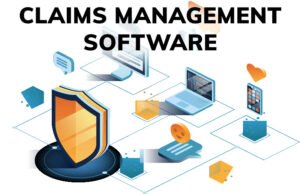Product sales and distribution claims are covered by vendor liability insurance. Vendors must ensure product safety and quality. Customers may hold you accountable for product or service-related injuries, illnesses, or financial losses. This insurance covers legal bills, settlements, and compensation in such cases. Retail, wholesale, and manufacturing organizations need vendor liability insurance to protect against product liability risks.
Why 2024 Vendor Liability Insurance Matters
Increased consumer demands and strict rules make vendor liability insurance even more important in 2024. With more e-commerce and cross-border sales, sellers face more dangers. Customers want high-quality, safe products, so regulators enforce tight standards. Legal action can ruin a business if quality control is neglected. Vendor liability insurance protects the firm from these damages. This insurance shows organizations’ commitment to quality and consumer safety, boosting their reputation in a competitive market.
Key Vendor Liability Insurance Coverages
To prevent lawsuits, vendor liability insurance covers many factors. Bodily damage coverage provides financial support if a vendor’s goods injures a client. In case a product damages a customer’s property, property damage coverage is vital. Product liability coverage protects vendors from manufacturing and design defect claims. Advertising injury claims may also be covered. Businesses must understand these coverage regions to be protected.
Vendor vs. General Liability
Vendor liability insurance is comparable to general liability insurance but separate. General liability insurance covers bodily harm, property damage, and personal injury claims. However, it does not address vendor risks. Vendor liability insurance covers product flaws, labeling, and safety claims. Both types of insurance can shield suppliers against business risks and product-specific liability.
Those who need vendor liability insurance
Product manufacturers, distributors, and sellers need vendor liability insurance. This covers manufacturers, wholesalers, retailers, and online vendors. Companies that sell products to the public face liability if they cause harm. Since small firms may not be able to afford significant settlements or legal bills, this insurance may be vital. Contracts with major retailers may require vendors to have vendor liability insurance. This coverage reduces product sales risks for enterprises.
Product Recall Protection with Vendor Liability Insurance
Product recalls cost businesses and damage their reputations. Recalling a damaged product can cost a lot in transportation, disposal, and replacement. The business can save money by covering these charges with vendor liability insurance. This insurance also covers customer lawsuits caused by defective products. In an age of widespread product recalls, vendor liability insurance can help suppliers handle financial and legal issues.
Vendor Liability Insurance in Risk Management
Business risk management relies on vendor liability insurance. This insurance lets firms focus on expansion without worrying about legal risks by covering claims. It also motivates providers to focus product quality and safety, as this insurance frequently requires meeting criteria. Many organizations prioritize risk management in 2024, and vendor liability insurance is vital. This coverage protects the business and reassures clients that the vendor guarantees their items.
The Cost of VL Insurance
Vendor liability insurance costs depend on product type, business size, and coverage level. Due to greater claim rates, high-risk businesses like electronics and food may pay higher premiums. Larger enterprises with more sales may pay more for insurance. This insurance is cheap compared to legal losses. Vendor liability insurance gives businesses peace of mind against costly claims.
Selecting Vendor Liability Insurance
Your business demands must be considered while choosing vendor liability insurance. Consider the hazards of the things you sell. Businesses should also check coverage limits to ensure they cover claims. An insurance professional who specializes in vendor liability can assist you get the right policy. With product liability becoming more complex in 2024, choosing the correct coverage is essential for full protection.
Vendor Liability Insurance and Customer Trust
Businesses can gain client trust with vendor liability insurance. Insured vendors inspire confidence in their products’ safety and quality. This is crucial in 2024 as consumers become more aware of product safety risks and choose companies that value their well-being. Vendor liability insurance shows their dedication to client pleasure and safety, which can boost customer loyalty and word-of-mouth referrals. Any business benefits from client trust in a competitive market.
Global vendor liability insurance
E-commerce has helped vendors access global audiences, but it has also complicated product liability management. Suppliers face international legal risks due to product safety and liability restrictions in different nations. No matter where their products are sold, vendor liability insurance can protect firms from overseas lawsuits. Businesses expanding abroad need this insurance to manage the legal landscape and mitigate risks. As more organizations go worldwide in 2024, vendor liability insurance is essential for controlling foreign exposure.
Vendor Liability Insurance
Product safety standards are stricter in 2024 due to government regulations. Companies must guarantee their products fulfill these criteria to avoid penalties and lawsuits. If a product violates these regulations, vendor liability insurance can protect you. It also covers legal fees, which might be high in regulatory infractions. Maintaining compliance with rules is crucial for organizations, and vendor liability insurance can provide financial security if concerns develop.
Future VLI Trends
Several trends are impacting vendor liability insurance in 2024. Risk assessment and management with technology is a major trend. Insurers increasingly use data analytics and AI to assess product risks and set rates. Demand for industry-specific policies like e-commerce and technology is rising. These trends suggest that vendor liability insurance will continue to adapt to business needs. Suppliers must monitor these trends to provide the most appropriate coverage.
Conclusion
Business owners must invest in vendor liability insurance in 2024. Product liability risks are rising due to consumer knowledge, regulatory scrutiny, and worldwide market expansion. Business losses from claims, recalls, and regulations are protected by vendor liability insurance. Sellers may focus on expansion and innovation with this insurance to safeguard them from product liability surprises. Supplier liability insurance is essential in today’s competitive industry and a strategic instrument for customer trust and long-term success.




